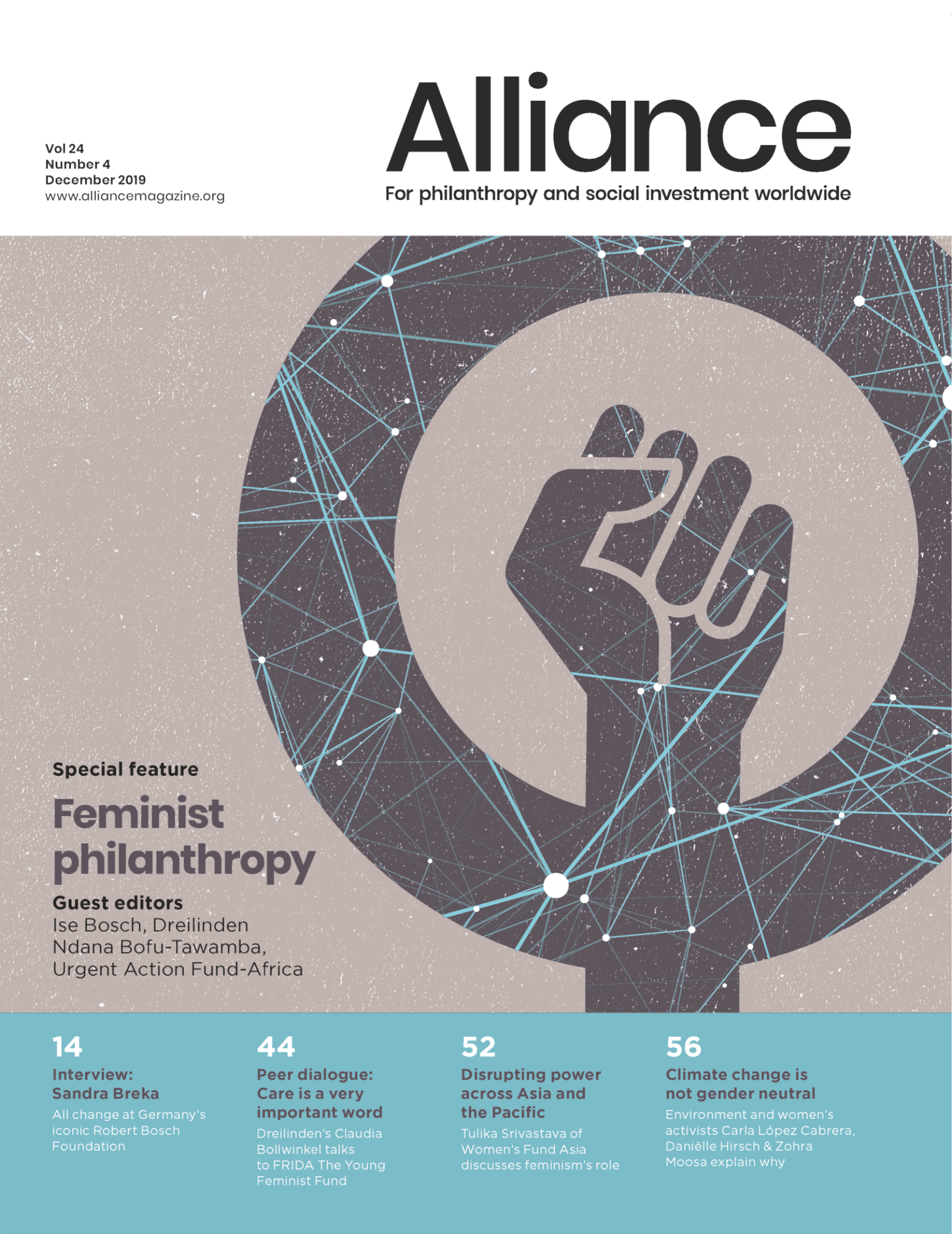Liberation awaits men who dare to stimulate debate about the male condition, and enables them to embrace the feminist call for systemic change
Twenty years ago, my partner – at the time avidly absorbing the complete œuvre of Simone de Beauvoir – introduced me to feminism. It was a revelation: I realised that people are not born as women or as men, but it is society that shapes and projects gendered roles, behaviours and expectations. ‘Traditional masculinity is just as crippling a venture as the summons of femininity,’ says Virginie Despentes in King Kong Theorie.[1]
What a liberation! As a heterosexual young man, I didn’t have to be fond of football, I could hang out with gay friends, and enjoy the exploration of what is female and gay, straight and queer in myself. It was the realisation that essentialist projections don’t do justice to the multitude of individual identities and experiences. And that binary thinking – man/woman, good/bad, black/white, yin/yang, nature/culture, body/soul, right/wrong – is at the source of much suffering. Binaries stabilise hierarchies and power relations; they kill the nuance, the complexity and the inter-connectedness of life.
Men should dare to stimulate debates about the male condition, about the parts of their masculinity that have been harmed, morphed and damaged because of patriarchy.
However, I didn’t see myself in all types of the rich and sometimes contradictory variants of feminism. Canadian prime minister Justin Trudeau calls himself a feminist, but he doesn’t shy away from digging, burning and poisoning his country through his support for the fossil fuel industry. And Hillary Clinton’s ‘let’s break the glass ceiling’ looks like the same careerism that replicates the patriarchal values of achievement, competition and ‘power-over’. The multiple systemic crises the world finds herself in today need to be addressed through a broader lens.
Feminism offers that lens. Beyond the essential fight for equal rights and opportunities, feminism is an analytical framework that allows us to understand and denounce the dominant system of commodification and exploitation of people and planet through the right of the mighty. Women and girls are among the first and most numerous victims of that system, but they are not the only ones – patriarchy is inherently connected with ableism, white supremacy, anthropocentrism. That makes feminism a systemic alternative to the capitalist-extractivist-patriarchist nexus denounced by intersectional feminists such as Naomi Klein in her brilliant 2014 book This Changes Everything[2] on capitalism and climate change. Indeed, such intersectional, systemic-change feminism is a powerful lens for social change, including for philanthropy.
Feminist philanthropy is therefore not only about giving money to women and girls. It is not limited to ‘grantmaking with a gender lens’.
So what might ‘male feminism’ in the context of a systemic conception of feminism look like? For a start, ‘allyship’ is critical. Men should be careful about the space they take and be willing to step back if their voices are being heard at the expense of women. Working part-time and assuming care responsbilities, for example, also allows men to enlargen their condition beyond masculine sterotypes and expections. It’s not always easy – I’m working 80 per cent, and leaving the office at 16:30 is a constant challenge – but hey, women juggle with much more! And, most of all, it is actually enriching to spend time with your child.
Feminists have deconstructed the female condition over centuries. Men should dare to stimulate debates about the male condition, about the parts of their masculinity that have been harmed, morphed and damaged because of patriarchy.
Beyond men ceding space and power, feminism contributes to collective liberation and systemic change. It can guide our quest for radically different ways of organising our societies and our organiations.
Philanthropy needs the liberation of a truly feminist transformation as much as society as a whole.
Feminist philanthropy is therefore not only about giving money to women and girls. It is not limited to ‘grantmaking with a gender lens’. Rather, it is flipping the coin from a ‘masculinist’ logic of competition, growth, profit, exploitation, impact, targets (note the militaristic etymology of these terms) to a radically different worldview and mindset in all aspects of organisational practice. It is a logic of cooperation, regeneration, healing, care, empathy and deep connection with life, humans and non-humans alike.
It is philanthropy of trust, it is building horizontal organisations grounded in sober and solid values of love for people and planet. It is embodying a systemic alternative through a practice of playful experimentation, hands on and every day. Philanthropy needs the liberation of a truly feminist transformation as much as society as a whole.
EDGE (Engaged Donors for Global Equity) runs a Gender Justice Initiative and regularly trains funders on feminism.
Tobias Troll represents the EDGE Funders Alliance in Europe.
Email: tobias@edgefunders.org
Twitter: @TobiasTroll





Comments (1)
Thank you for this article, Tobias! I wish your article will be read by many men and make them think about what they can do.And I am very happy you agreed on bringing this topic on the table at our next conference in Germany in June in Leipzig to inspired German funders with this thinking and before at the Change Funders Week/Day in Berlin.